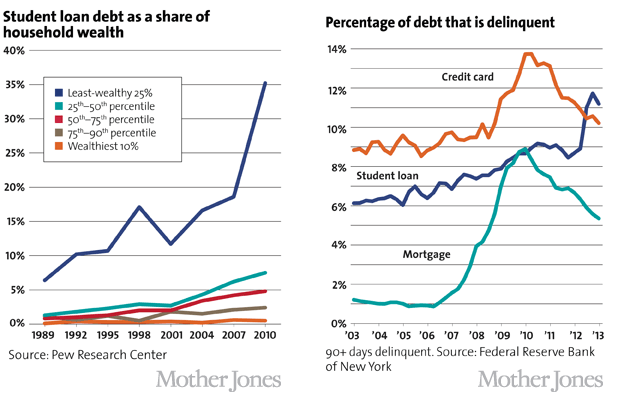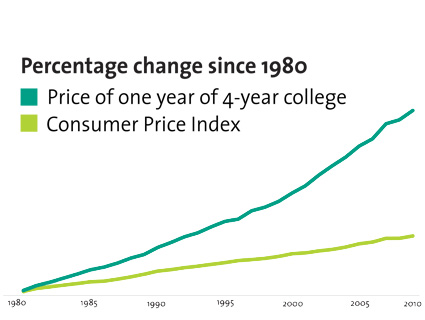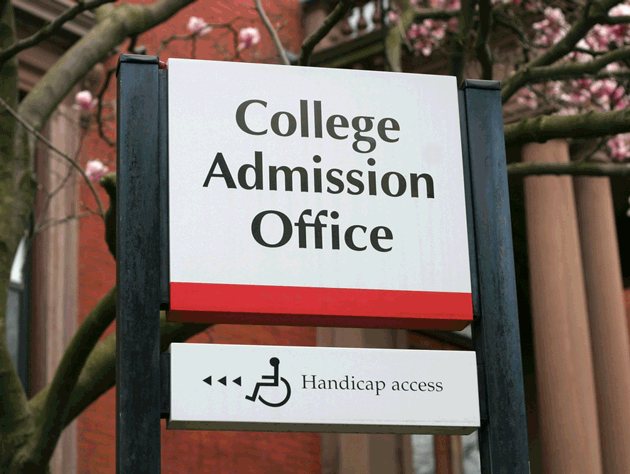The explosion of college tuition and student debt is leaving more grads with big bills and doubts about their futures. Some back-to-school stats:
1. College costs a lot more than it used to.
The good news: College grads earn 84% more than high school grads.
The bad: Getting that sheepskin is getting a lot more expensive.

Between 2000 and 2012:
• Consumer Price Index increased 33%.
• Median household income (adjusted for inflation) dropped 9%.
• Average four-year college tuition increased 44%.
• Private for-profit tuition increased 19%.
• Private nonprofit college tuition increased 36%.
• Public college tuition increased 71%.
Between 2000 and 2012:
• Public spending on public education has dropped 30% even as enrollment at public colleges has jumped 34%.
2. So we’re borrowing more to go to school.
As college costs have shot up, so has student debt. Americans owe almost $1 trillion on their student loans, 310% more than a decade ago.
In 1989, 9% of households had student debt. Today nearly 20% do.
The average amount of student loan debt has increased 177% since 1989.

3. But we can’t pay it off.
Debt is increasing fastest for those who have the least money to pay it back.
56% of all student loan debt is owed by households headed by people 35 or older.
47% of total student loan debt is held by households with incomes below $60,000.

4. And we’re putting our dreams on hold.
Nearly half of college graduates with student debt say it has made it more difficult for them to make ends meet. 24% say it has affected their career choices.
25% of recent grads say student loan debt has made them take unexciting jobs just for the money.
Student debt’s impact on borrowers’ long-term plans:
• For every $10,000 in student debt: Borrowers’ likelihood of taking a nonprofit, government, or education job drops more than 5 percentage points. Their long-term probability of getting married drops at least 7 percentage points.
• Student loans affect the housing market: Larger student debt burdens are making it harder for recent college graduates to get home loans, according to the National Association of Home Builders.
• Student loans affect the entire economy: The Financial Stability Oversight Council reports that high student debt levels could “lead to dampened consumption,” and the Consumer Financial Protection Bureau warns that unpaid student loans “could be a drag on the recovery.”












